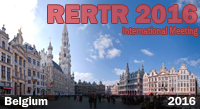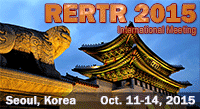Abstracts and Available Papers Presented at the
2000 International RERTR Meeting
Nuclear Liability and Research Reactor Fuel, A Plant Supplier's View
by H.-J. Roegler
Siemens Nuclear Power GmbH
ABSTRACT
Contracts on Research Reactors are normally entered into by the owner and – very often – later user and the supplier of such plants. They are not concluded by the fuel supplier, except fuel supplier and plant supplier are identical. Thus, the fuel supplier mostly has no direct influence into the contract negotiations and the clauses which are eventually agreed upon between the parties. So has any other subcontractor for any other system or component.
Any such subsupplier can and will negotiate a subsidiary supply contract (subcontract) with the supplier of the plant. The supplier drafts the related clauses so as to pass on to the subsupplier as many risks out of his contracts as possible. The subsupplier, on the other hand, tries to protect himself, tries to limit the risks he takes over, e.g. to the worth of his subcontract maximum.
A critical issue in such negotiations is those concerning the risks the supplier had to accept and the subsupplier, although he may be responsible later for the risk changing to reality; i.e. the occurrence of a loss, cannot be hold liable for in full because the subcontract limits his liability, e.g. to the subcontract value or a certain delay penalty. A typical example for this conflict are delays of the entire project caused by one subsupplier.
A very specific case in this context is the so-called nuclear liability. Nuclear liability means being hold responsible for the consequences or damages originating from a nuclear event in the plant. Those consequences or damages may be suffered by third parties, which are neither the owner/operator nor the supplier and result in a liability to such party (third party liability).
Several of the aspects below may be related to the nuclear liability issue:
- The supplier often has its registered office not in the country where the plant is.
- The supplier may have far bigger assets than the owner/operator.
- The legal system of the supplier's country may be more favourable for enforcing claims of compensation than of the operator's country.
As there are many potential conflicts around the issue and as there is the need to protect the supplier from, there has been established already early in nuclear history an international regime on how to deal with such claims:
- 1960 the Paris Convention (amended 1964/1982) plus the
- 1963 the Brussels Supplementary Convention
- 1963 the Vienna Convention
- 1988 the Joint Protocol linking the application of the Vienna and the Paris Convention.
But as many states have joined neither the Vienna nor the Paris Convention (nor the Joint Protocol), there have often been established bilateral agreements on how to deal with the nuclear liability in terms of a specific project. The main issue with such bilateral agreements is the backing by that state the owner of the plant belongs to for the owner's obligation out of the nuclear liability. Often this cannot be reached due to the need of a state's decree or modification of the law for that very purpose. This is refused sometimes as well due to lack of insight in its need for a nuclear facility as small as a research reactor.
All that issues above have to be taken into considerations during the contract negotiation between the plant supplier and the plant owner when contracting for its construction. All the issues may influence also whether the plant supplier find subsuppliers which accept or can live with the results of such negotiations for their subsupplies. It is inherent that the fuel suppliers are especially keen in solutions which indemnify them from any such risk out of nuclear events; so are organisations which perform safety evaluations. The fuel suppliers especially may be the more interested in high protection the more they are urged to deliver advanced fuel with less tests prior to application, e.g. as consequence of the steady announcement of extremely ambitious development progress by the RERTR program.
This contribution to the RERTR-meeting will detail and give examples in how far specific solutions deviate from the approach made in the conventions and discuss which protective measures suppliers and subsupplier can try and what they may mean.
![]() PDF version available
PDF version available
DOWNLOAD full paper in PDF format.
Contact:
Dr.
Hans-Joachim Roegler
Siemens Nuclear Power
GmbH
P.O. Box 3220
91056 Erlangen, Germany
Phone: 49-9131-18-6420
Fax: 49-9131-18-6685
E-mail:[email protected]




